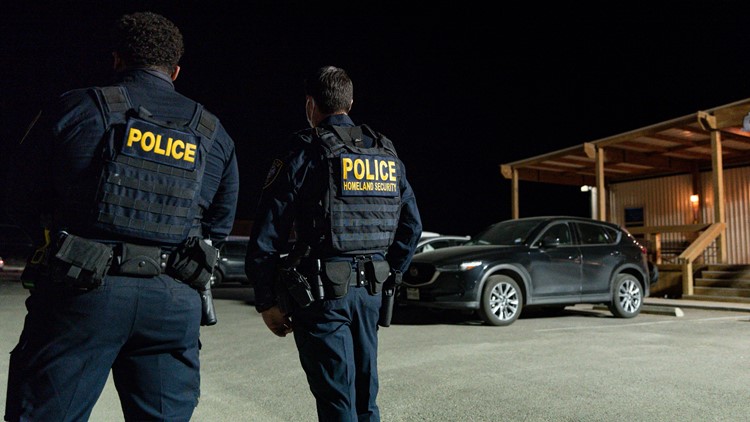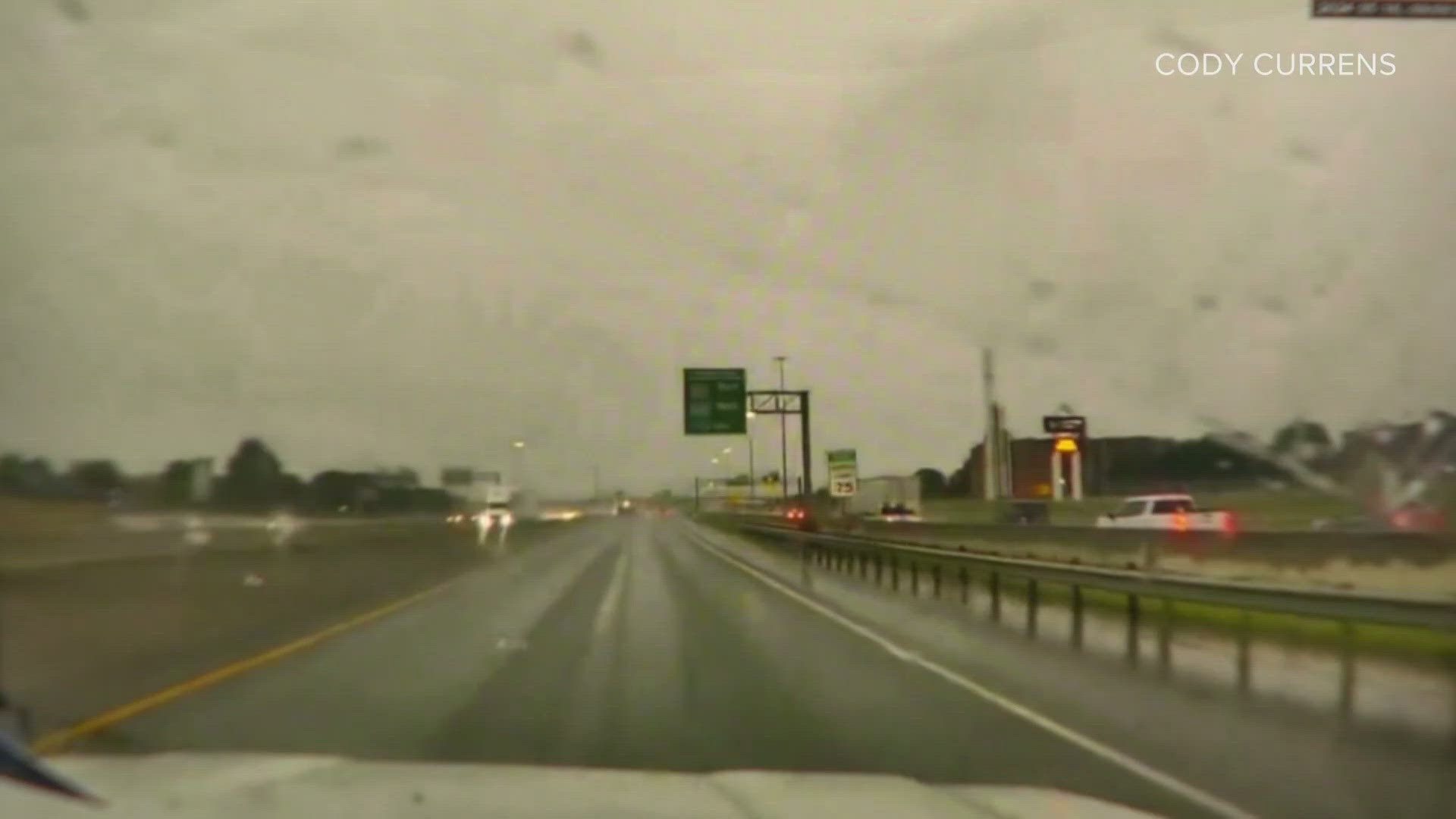DALLAS — The U.S. government has begun housing hundreds of unaccompanied migrant children in Texas. Federal officials said there has been a surge of people crossing the border this year and the U.S. government is quickly running out of space to hold them.
Two-hundred migrant teens arrived on busses Wednesday night at the Kay Bailey Hutchison Convention Center in Dallas. Officials said up to 3,000 teen migrants to be housed at the facility while they await their immigration cases to be heard.
Many of them are from El Salvador and Guatemala, according to Dallas Area Interfaith. Below is everything a breakdown of everything we know so far:
How old are the minors?
Up to 3,000 total minors will be brought to Dallas with around 2,300 of them being teenage boys between 15 to 17 years old.
Why are the unaccompanied children being transported to North Texas?
Federal officials said there has been a huge surge of people crossing the border this year and the U.S. government is quickly running out of space to hold them.
The convention center has been leased for 75 days and the goal of the facility is rapid reunification with their families.
Advocates said the teens are fleeing violence and threats against their families in their home countries. But Gov. Greg Abbott said the Biden Administration's friendlier border policies have also contributed to the surge.
Abbott said since the teens are being housed in North Texas, he wants the administration to give DPS troopers access to interview the children about their journey here and the adults who brought them.
Are there other migrant housing facilities in Texas?
As many as 700 unaccompanied migrant children will stay at a housing facility in Midland County, where they will remain for the next few weeks.
According to an update from Midland Mayor Patrick Payton, 485 teens have already arrived as of Wednesday evening.
The U.S. federal government is also considering an additional housing site at the old Dick's Sporting Goods store in Irving.
Sources tell WFAA, a developer in California owns the property and said it's been offered to DHS as another housing site. If that plan is approved, FEMA could put up to 450 more migrant children there.
What COVID-19 protocols are being followed?
Texas Health and Human Services stated Tuesday that there will be a COVID-19 health screening protocol for all children which will follow CDC guidelines.
According to officials, these services will be provided by the American Red Cross, contractors, and federal staff.
Federal officials said they are increasing capacity at its permanent/licensed network by implementing COVID-19 guidance. Those who test positive will be placed in a hotel.
How you can help the migrant teens
People who would like to help the migrant teens being housed at the Kay Bailey Hutchison Center can volunteer with Catholic Charities Dallas or donate to the Red Cross.
Catholic Charities President and CEO Dave Woodyard said Spanish-speaking volunteers are needed but there are some already prepared to help the minors.
If you want to help, you can sign up to be a volunteer. The Catholic Charities Dallas does run multiple checks, including background checks, on volunteers.
The Red Cross is also providing supplies to the minors, including cots, blankets, hygiene items, masks, hand sanitizer.
The nonprofit said it has provided phones to organizations, which migrants can use to reconnect with family members back home to let them know they're safe.
How does the unaccompanied children program work?
The U.S. Department of Health and Human Services answered some questions it said it has received about unaccompanied children coming into the country. Its full list of FAQs was most recently updated on Wednesday, March 17.
HHS said it's legally required to provide care for all unaccompanied children until they are released to a suitable sponsor or almost always a parent or close relative, while they await immigration proceedings.
Below are some answers to FAQs posted on the HHS website:
Is there a system for keeping parents and children connected if they are separated for immigration proceedings?
A. Yes. When adults and minors are apprehended by immigration authorities, their information is entered into government databases by which their cases can be tracked.
What are the procedures for children separated from their parents to communicate with each other?
A. Within 24 hours of arrival, minors are given the opportunity to communicate with a verified parent, guardian, or relative living in or outside the United States. Every effort is made to ensure minors can communicate (via telephone or video) at least twice per week. This communication is paid for by HHS.
How can parents get in touch with their children?
A. Parents or guardians attempting to determine if their child is in HHS care should contact the ORR National Call Center at 1-800-203-7001, or via email at information@ORRNCC.com. Personal information will be collected and sent to the HHS-funded facility where the minor is located.
Do children have access to lawyers?
A: Yes. HHS fulfills all requirements of the Flores settlement agreement and informs all minors of their rights by providing a Legal Resources Guide, Know Your Rights presentations, and HHS-funded legal services.
How can very young children or children who are unable to verbally communicate be reunified with their parents?
A: The Office of Refugee Resettlement said it has procedures and systems for identifying the parents of young children and children who are unable to verbally communicate.
Are children who arrived as unaccompanied ever enrolled in local schools?
A: These children do not attend local schools while in ORR care. HHS said the children spend 57 days on average at the shelters and do not integrate into the local community while in HHS custody. They remain under staff supervision at all times.
When an unaccompanied child is released to an appropriate sponsor, while awaiting immigration proceedings, they have a right to enroll in local schools regardless of their or their sponsors' actual or perceived immigration or citizenship status. More information about local educational agencies and unaccompanied children can be found online.



